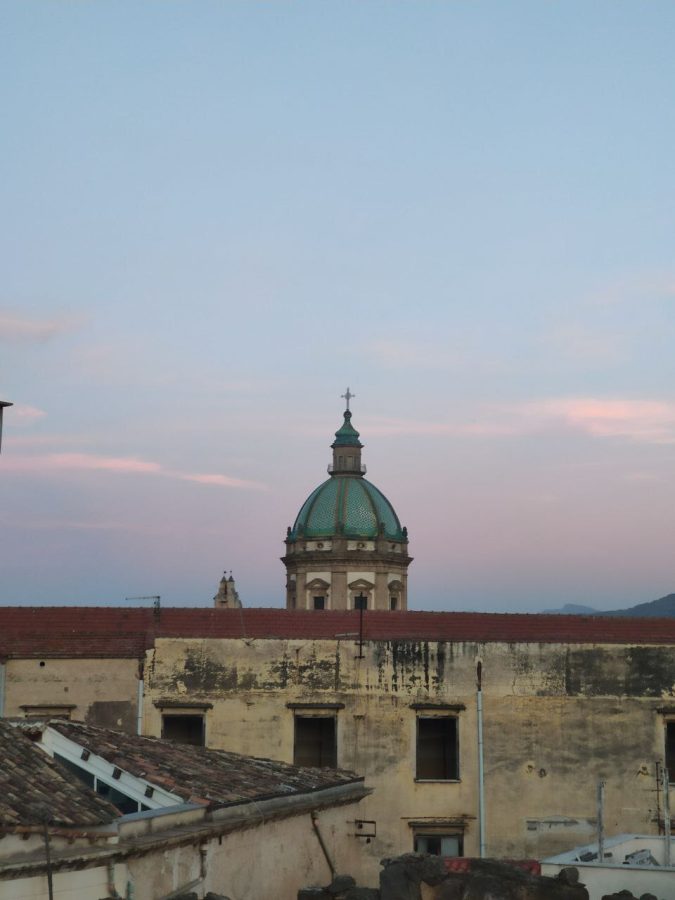Capo flea market - job shadowing in Palermo
In May 2023 our collaborator Luis Miguel Benavides traveled to Palermo to carry on a jobshadowing residence in the frame of the EduCity project. He spent two weeks collaborating at the local activities run by our partners of Bond of Union, exchanging ideas and methods and providing an external feedback to their specific community issues. Find here his engagement diary.
Little by little, kilometer per kilometer, I leave Germany behind and a feeling of calmness embraces my soul. Before hopping onto the train everything is an organizational chaos, but as soon as I sit down, I know I can just write, read, see and simply exist. I can spend the whole weekend contemplating the ever-changing landscape and allowing time to sink into my bones and muscles.
On the night train between München and Padova I share the cabin with an Italian and a Turkish man, both in their middle ages. It is a no-fail rule, the closer you are to Italy, the easier it is to establish conversations with other passengers. Ajar, my Turkish companion for the night, tells me wonders about Istanbul and its surroundings. He is gentle and intelligent, and tells me tales about gold, petrol and power, but at the end of the day the most important thing for him are his three sons and his wife. He reminds me a bit of my father, also because of how loud he snores in the night. When I wake up I am in Padova. It is 5 am and the full moon shines proudly in the sky, illuminating my steps between the sounds of waking birds, trash trucks and late-night drunks. I hop onto another train and get to Florence by 9 am, where I will be able to have a rest and spend the whole day with friends.
On Sunday morning I continue my route to Palermo and the rain accompanies me along the way. I think about Berlin and the projects I left there half way cooked. I think about the financialization of Florence. I think about the manifestations of fear. I think about hope and ingenuity. I think about the tensions between complacency and adaptation. I think, I think and I think because the trip is long and I have time. To my right green valleys open up along the mountain ridges, filled with the blooming yellow of the chrysanthemum flower. To my left I see the waves breaking on the shore calmly but without stopping. By the time I arrive in Sicily the sky is painted in blue and pink. I can hardly believe how beautiful this island is, and the magnificence of the landscape overwhelms me to the point where I feel that the human dimension is insignificant. Then it pours and I get soaked. I did not expect such an arrival in Palermo but I love to watch the rain run off the cobbled streets, and see how quickly they turn into rivers and puddles like lakes.
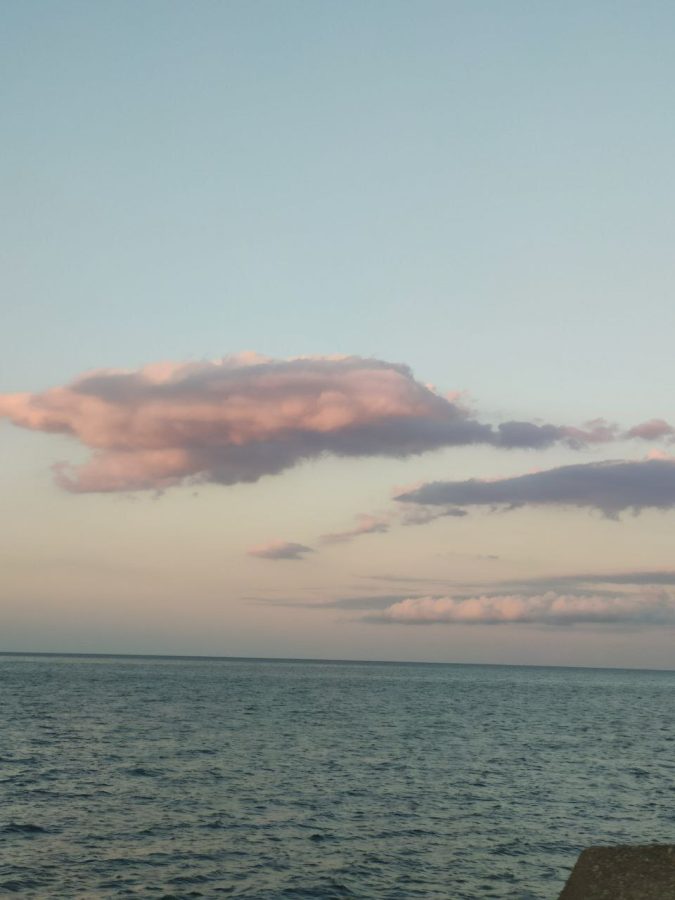
In Palermo the past has a stronger presence than the present. Similarly to Florence but in a completely different way. This city is not a museum, but is rather loud and alive. In my mind I think about what it means to value local knowledge and as new-comer I can only think of showing appreciation. I am inspired by the colors, the materials, the light and the perspective. I see how the passing of time mistreats the craft of older generations, and I am curious to discover what is the role of urban practitioners in all of this, especially taking into account that the focus that Edu-City has in Palermo is on the revitalization of a historical flea market.
I am very warmly welcomed by Paola, our colleague from Bond of Union, and in one of our first talks she introduces me to a key concept to understand Palermo: il disagio. The word disagio could be translated into English as a sort of unease or sloppiness, but to the core it points towards the implications of living in a city where everything is a bit broken. You can see disagio everywhere and it does not necessarily need to have a negative connotation. Disagio is a broken window in a toilet or a bus that takes you to a place but does not bring you back. But it is also dancing with crutches or rolling a cigarette with one hand because the other one is hurt. Disagio is not good or bad, it just is. You can then choose to appreciate it or not. And the creativity emanating from this search for solutions to everyday problems is for sure an art. A local craft that some Palermitans have mastered by appreciating existence even when everyday life gets hard. And it does.
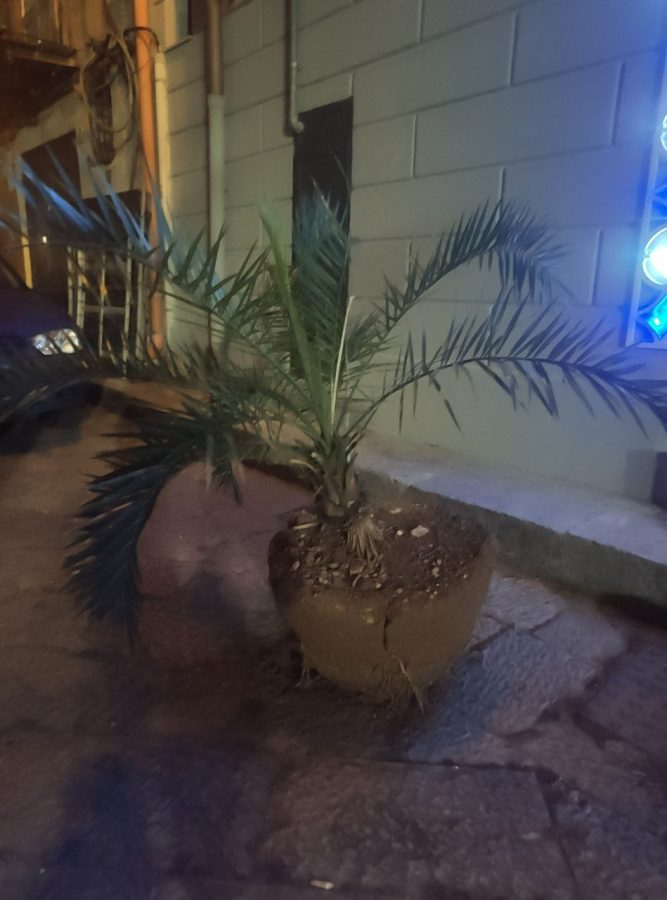
I have the luck to follow the work of Paola in Il Capo for almost two weeks. This time for me is a reality check in the best sense of the word. Palermo is a very contradictory and intense city. Sometimes it feels that institutional neglect is the heaviest of burdens, and some others it is a blessing to be able to do things the Sicilian way. People in Palermo enjoy street life and the neighbors know each other well, perhaps too well. It’s hard to go unnoticed, but the closeness feels good, and makes me realize the power of personal interactions in any form of community or neighborhood organizing. It’s the little details like screaming hello to a person that you see everyday and finding the time to stop and catch-up. The city is hectic but calmed. It smells like pee and orange trees.
These days, Bond of Union is leading the creation of an educational pact for Il Capo. All the associations that are working on the field of education are coming together to bundle resources and activities in order to offer alternatives for the youth of Il Capo to use their free time. The group is mainly composed of women and I am impressed by their determination. They are the driving engine of a positive change that tries to overcome the passivity of those who have no strength or desire to value their surroundings or themselves.
Another clear example of such a process is il Mercato delle Pulci (the historical flea market). The market has its origins in the after war period, as a place where very specific objects could be found at a reasonable price. Items like ottocento tables, or tiles from aristocratic palazzos decorate the street market which in itself feels like a gem from a distant past. Alone its view is one of the most picturesque sights of Palermo. Trees growing out of favela-like constructions that are home to some of the most interesting objects of Palermo’s history. In a conversation with a vendor he tells me that the tree inside his store is for him like an elderly relative that has been accompanying him through the years.
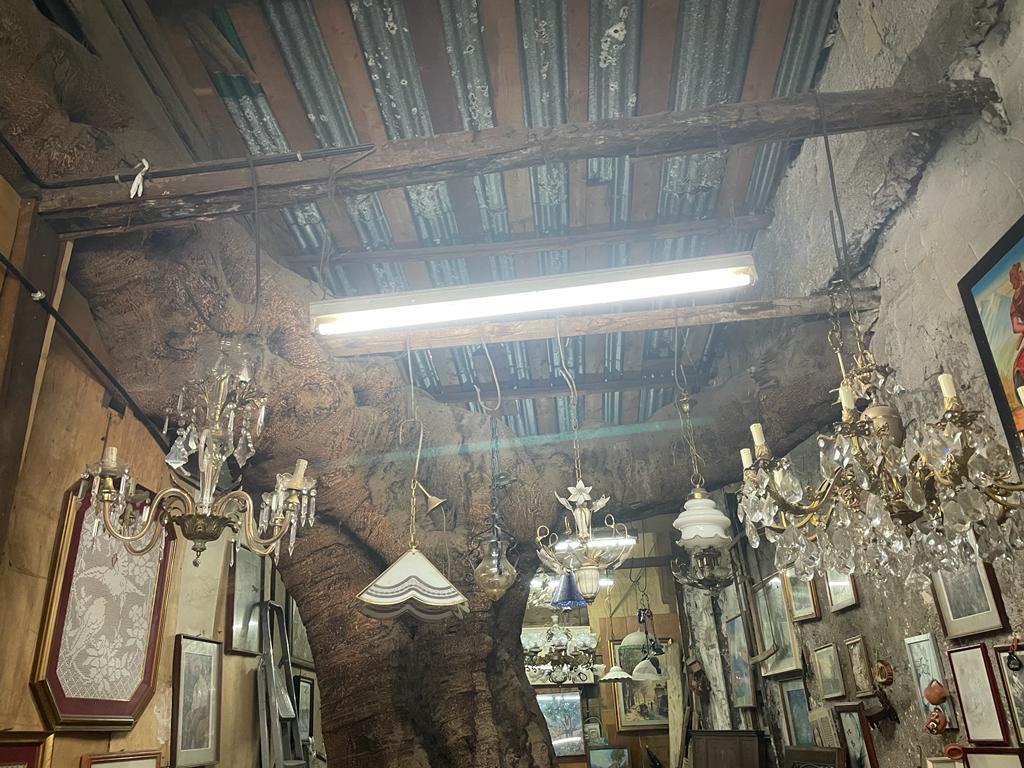
During one of my visits to the market I witness some of the negative consequences of the culture of disagio. A tree had fallen and destroyed a couple of stands. However the market, like most of the economy in Palermo, is informal, and that means that it is hard to point out responsibilities when such an accident occurs. Moreover, the illegal status of the stands threatens with the risk of eviction and the vendors are particularly careful in having a good relationship with political representatives so that they would never need to give up on their life sustenance.
The value of the market should be clear to everyone who pays a little bit of attention. It’s not only a fundamental part of the history of the neighborhood, but also of Palermo and Italy in general. The craftsmanship of the vendors requires skills on the verge of extinction. Their treatment of wood, stone and glass is a delight for the senses, and the vendors take the time to explain the quality of their products. In a city like Palermo, beautiful as it is but in need of urgent renovations, it should be a priority to find ways to transmit this essential knowledge. However, the years are weighing on the market, and the lack of generational change, as well as fatigue, financial constraints and the fear to be evicted is constraining the agency of the vendors. Within this context the team of neighborhood facilitators composed by Ana, Eli, Paola and Giuliana offered their help to the vendors to revitalize the activities of the market under their own criteria and standards.
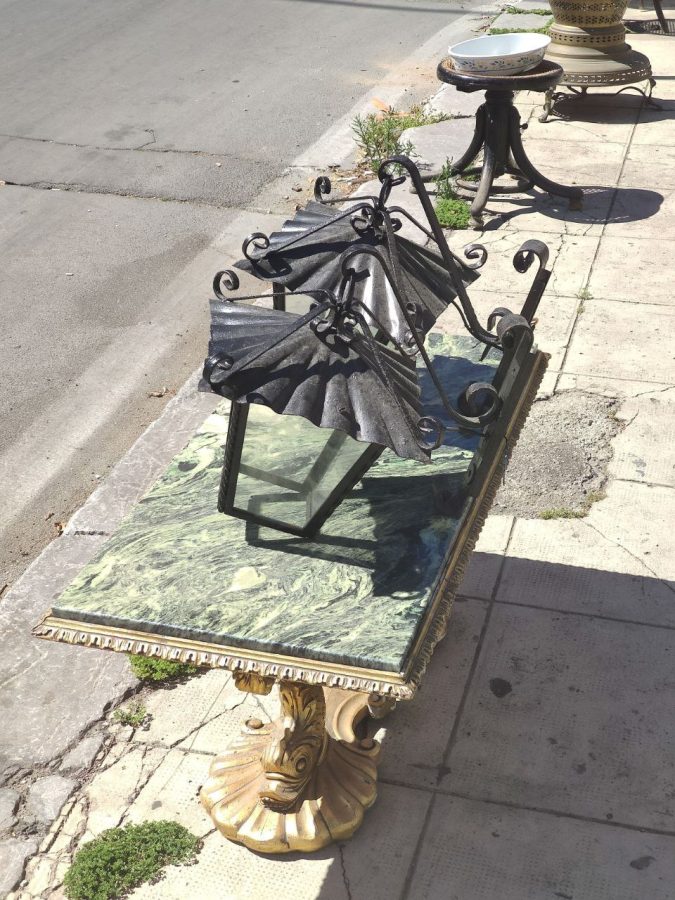
It just proved to not be that simple. The original idea, proposed by some of the vendors, consisted in throwing out an event co-organized by all in a way that everybody would contribute something to make the market more attractive. Even the possibility to collaborate with the Academy of Fine Arts was on the table. However, internal disputes within the community of vendors and a very untimely renovation of the adjacent street led to the cancellation of the event. Ana and Giuliana explained to me that this was an old dynamic, way older than the market itself. A heritage of their parents which prefers to leave things as they are, even if they are looking bad. It is also hard for the vendors to collaborate with each other because of a culture of conflict that does not easily allow for reconciliation – either you are with me or against me. This is frustrating not only for the group, but especially for some of the vendors like Alfredo who is a very open minded person and was very interested in the opportunity to bring some fresh air into the market. Alfredo tells me that the only reason that he has a stand in the market and not anywhere else is because he strongly believes that this market is one of the most special places in the world, and I can tell that he really means it. He feels disappointed that not everybody sees it that way, even within the community of vendors. As I walk along the market, I understand exactly what he means. The place speaks for itself.
There is a feeling that hunts Palermo that says that you can have the best ideas and intentions but at some point there is going to be an unavoidable block that stops the process. In this case, it was a hole in the street that will be repaired (let’s see when and how), but deeper than this hole is the commonly shared expectation that in Palermo nothing changes. Except that it does, because transformation is an indivisible part of life.
Observing this process ignites contradictory emotions in me. On the one hand, I understand the weariness of it all. On the other side, I feel hope. Not because of the things that did not happen, but because of the things that did and will continue to happen. The group of facilitators have not given up, they are in contact with the vendors and they are just waiting for the right moment to support them. Because this is not about a project, but rather a life-long commitment of caring for our spaces, our neighbors and for each other. And if the aim of Edu-City was to highlight and learn from some undervalued resources of the city, this is a first step in opening up conversations that otherwise would have never happened, as well as recognizing the complexity of urban transformations and the relevance of being there, observing, monitoring and when the right circumstances emerge, acting. With all the power that we share.
It becomes clear to me that in order to teach anything we need to be open to learn. These days in Palermo have shown me how long the road is ahead of us all, and in the market they are already walking it. Only no one said that the road was straight.
My last days in the city feel like a blessing. The sky shines in purple and lila in the far distance and I feel hugged by the city mountains. As I leave I realize that I am leaving traces of my heart behind. Hidden in a narrow street that only the morning sun is able to reach. Flying in a vespa, along rocks and plants that climb anything that stands between them and the sky. I surprise myself promising to come back and I know that I will stick to that.
